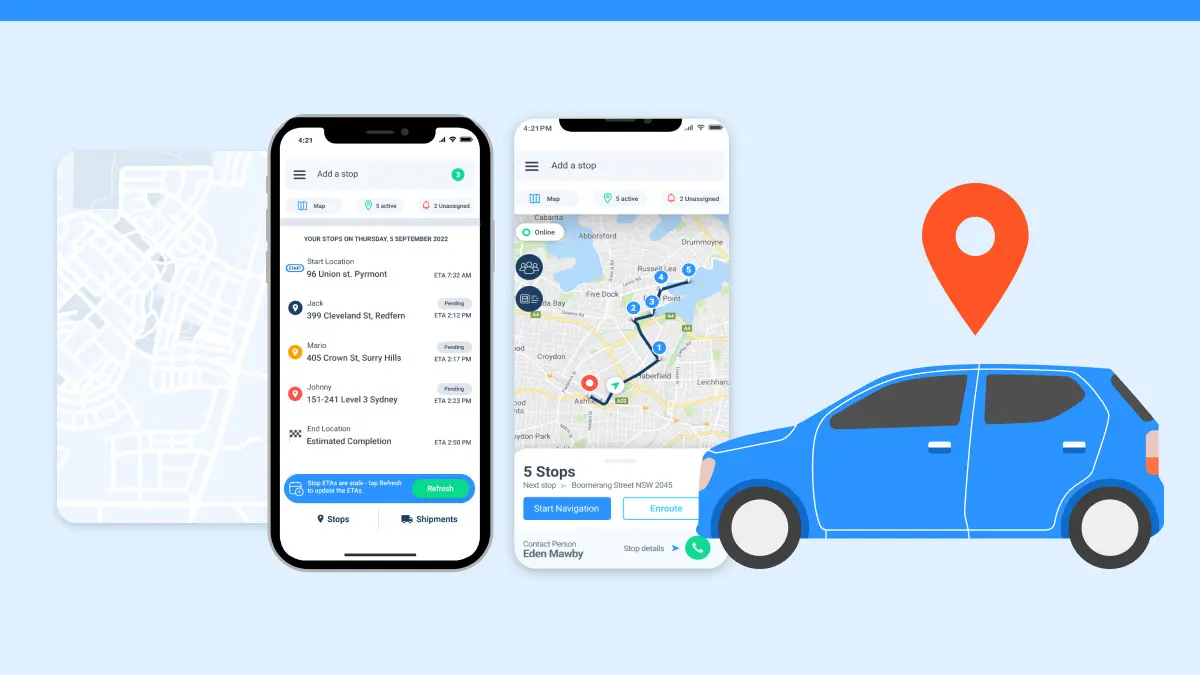Comprehensive Guide to GPS Tracking: Improve Security and Performance
Comprehensive Guide to GPS Tracking: Improve Security and Performance
Blog Article
Browsing the Future of GPS Tracking: Developments, Difficulties, and Opportunities Ahead
As we stand at the crossroads of technical improvements and societal effects, the landscape of GPS tracking is positioned for a transformative journey ahead. The evolution of GPS modern technology has been fast, introducing a new period of real-time tracking abilities that assure unmatched degrees of accuracy and performance. However, with great innovation comes excellent responsibility, as data personal privacy problems impend large and safety and security challenges in GPS monitoring raise essential concerns regarding securing sensitive information. Yet, among these difficulties lie surprise opportunities waiting to be discovered, offering a look into the untapped possibility of an industry at the edge of change.
Advancement of GPS Modern Technology
The Evolution of GPS Technology has been marked by significant improvements in precision, protection, and efficiency for many years. Created for armed forces functions, General practitioner innovation has evolved to come to be an ubiquitous device in numerous markets, including transport, logistics, farming, and personal navigating. Early GPS systems were characterized by restricted protection, reduced precision, and bulkier hardware demands. However, with recurring technological innovations, GPS has actually transitioned to much more precise and reliable systems that use global coverage and enhanced precision.
One secret landmark in the advancement of GPS technology was the advancement of Discerning Availability (SA) in the 1990s, which purposefully weakened the accuracy of noncombatant GPS signals. As General practitioner innovation proceeds to develop, we can anticipate further enhancements in performance, accuracy, and insurance coverage, opening up new opportunities for advancement and applications across numerous industries.
Real-Time Monitoring Innovations
Building on the innovations in GPS modern technology that have transformed precision and protection, real-time monitoring has actually emerged as an essential location of development with profound ramifications throughout different fields. Real-time tracking innovations enable companies and businesses to keep track of workers, vehicles, and assets instantaneously, offering valuable understandings for decision-making procedures - gps tracking. By leveraging real-time information, business can boost operational efficiency, boost customer support, and guarantee the security and security of their possessions
One of the essential improvements in real-time tracking is the combination of artificial intelligence and artificial intelligence algorithms, which allow predictive analytics and anomaly discovery. These abilities permit aggressive upkeep organizing, course optimization, and risk reduction strategies. The development of real-time monitoring systems has actually led to the advancement of mobile applications and customizable dashboards, empowering customers to access essential information anytime, anywhere.
Information Privacy Issues

Data personal privacy issues incorporate different aspects, consisting of the storage space, sharing, and retention of location information. Services should implement robust safety actions to secure general practitioner tracking data from cyber risks and data breaches. Clear policies relating to information collection techniques and the function of monitoring are important to develop trust with customers and make certain conformity with data defense laws.
Safety And Security Challenges in GPS Monitoring
Resolving data personal privacy issues in GPS monitoring is elaborately connected to mitigating the security challenges that occur from prospective vulnerabilities in the technology. One of the main security obstacles in GPS monitoring is the danger of unauthorized access to delicate area information - gps tracking. Hackers can intercept GPS signals, adjust area info, or perhaps track individuals without their authorization. This not just gets into personal privacy yet additionally postures serious safety and security dangers.

An additional security challenge is the possibility for spoofing or obstructing GPS signals. Applying robust security, verification procedures, and signal confirmation procedures are essential actions in resolving these security difficulties in GPS monitoring.
Emerging Opportunities in the Market
The blossoming area of general practitioner monitoring technology provides a myriad of promising chances for sector development and innovation. One essential chance lies in the growth of general practitioner tracking applications beyond traditional sectors. click this Industries such as logistics, transport, and fleet administration have been early adopters of GPS innovation. However, emerging possibilities are now occurring in areas like healthcare, farming, and environmental tracking. General practitioner tracking can transform person care by enabling remote surveillance of vital indications and making certain prompt medical support. In farming, GPS modern technology can enhance crop monitoring methods and improve general return. Environmental monitoring can profit from GPS tracking by allowing real-time information collection for climate research and preservation initiatives.
In addition, the boosting need for linked tools and IoT options offers a ripe opportunity for try this site GPS tracking companies to increase their offerings and develop cutting-edge remedies that cater to an extra connected world. By taking advantage of on these arising chances, GPS monitoring companies can place themselves for sustained development and success in the dynamic landscape of the market.
Conclusion
In verdict, the future of GPS monitoring is noted by constant development and advancement in innovation. Real-time monitoring developments and emerging possibilities existing encouraging prospects for the market. Information personal privacy problems and protection challenges stay considerable obstacles that need to be addressed. As the market moves on, navigating these challenges will be important to make sure the ongoing development and success of GPS tracking modern technology.
With wonderful development comes terrific responsibility, as information personal privacy concerns impend huge and protection difficulties in GPS tracking raising relevant questions regarding securing sensitive information.With the quick spreading of GPS tracking innovation in numerous markets, attending to data personal privacy issues has actually become a vital imperative for both customers and organizations alike. The collection of place data with General practitioner tracking elevates significant personal privacy concerns, as it allows the monitoring of individuals' activities and habits. Organizations using GPS monitoring must prioritize protecting this information to prevent unauthorized gain access to or abuse that might endanger individuals' privacy legal rights.
Organizations have to execute robust safety procedures to shield GPS tracking data from cyber dangers and information violations.
Report this page